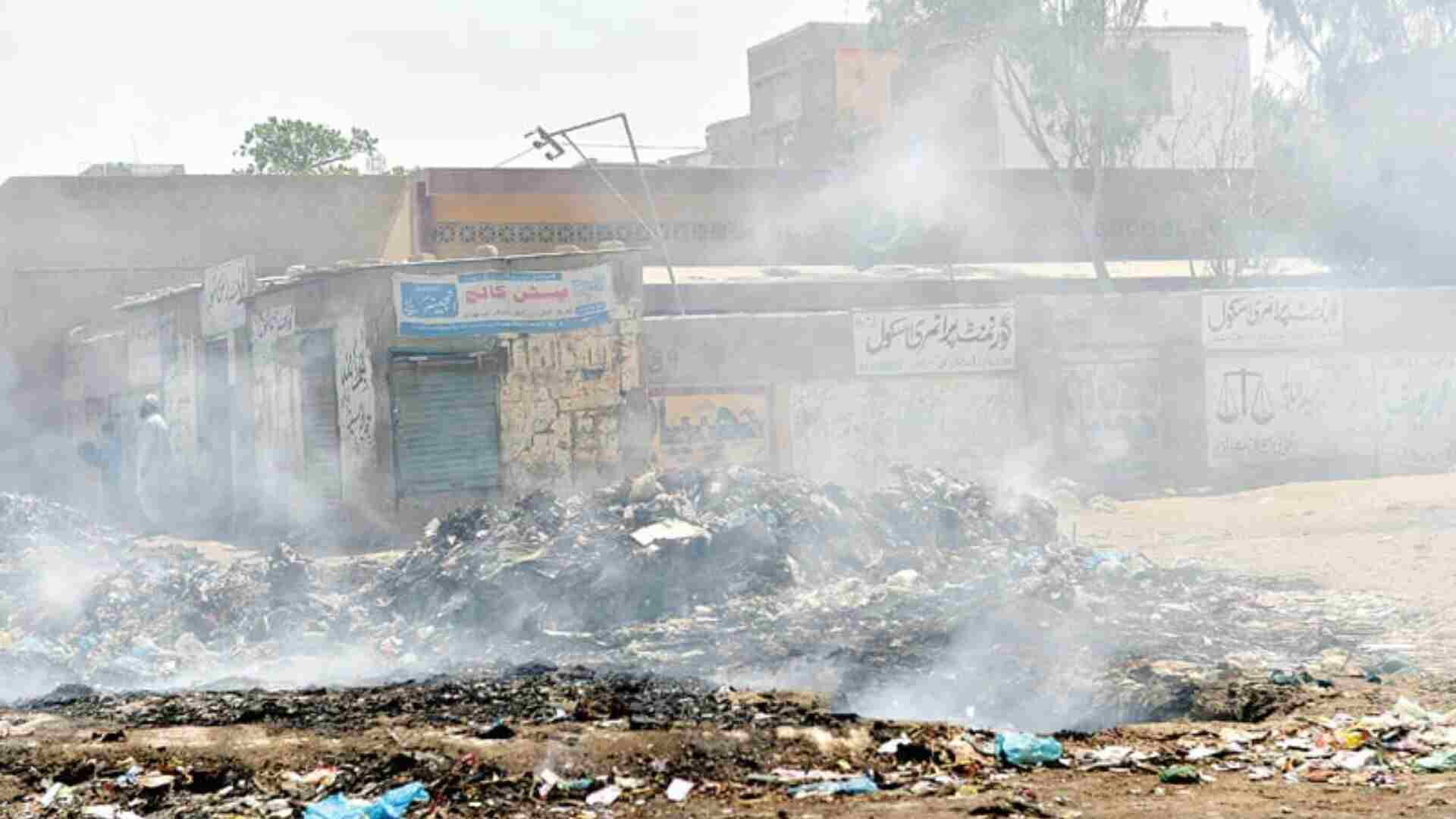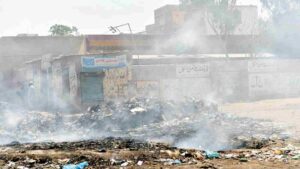As winter sets in, Pakistan has seen a significant rise in respiratory illnesses among its citizens over the past few weeks. Experts indicate that the number of cases this year is considerably higher compared to previous years, attributing the surge to worsening air quality. Severe dust pollution from ongoing roadwork across cities and the widespread loss of green spaces have exacerbated the problem, as highlighted by Dawn.
Additionally, experts link the rise in respiratory diseases to increasing poverty levels. The soaring costs of essential food and medicine have heightened people’s vulnerability to illness and disability, further compounding the issue.
Dr. Javaid Ahmed Khan, a senior professor and consultant pulmonologist at Aga Khan University Hospital (AKUH), explained to Dawn, “While respiratory disease cases typically rise with the onset of winter, due to colder and drier air trapping more pollutants, this year the numbers have nearly doubled. This applies to both inpatients and outpatients.”
Dr. Khan attributed the rise in cases to heavy dust pollution, stating, “I believe air quality has deteriorated significantly. There is extensive roadwork throughout the city, trees are being cut down, and people continue to burn waste on the streets. There is no regulation of vehicles emitting toxic fumes.”
He further elaborated that poor air quality increases the risk of bronchitis by exposing individuals to pollutants such as dust, fumes, traffic emissions, and chemicals. “Any type of pollution impacts the immune system, a fact supported by numerous studies. People living in polluted environments are more prone to pneumonia, upper respiratory tract infections, allergic rhinitis, and even tuberculosis,” he said.
Must Read: Romania, Bulgaria To Join EU Border-Free Schengen Zone By January 2025
Dr. Khan explained that particulate matter 2.5, a harmful pollutant, damages the respiratory system’s immune defences, leaving the body more susceptible to infections and diseases, including cancer. He noted, “The average diameter of human hair is about 70 micrometres, while particulate matter 2.5 consists of fine particles that are 2.5 micrometres or smaller.” He also highlighted research linking poor air quality to cardiovascular diseases, as tiny particles entering the bloodstream can block arteries.
Dr. Abdul Ghafoor Shoro, a senior general physician practicing in Keamari, echoed these concerns, reporting a 50% increase in respiratory illnesses, including asthma, bronchitis, flu, chronic obstructive pulmonary disease (COPD), and pneumonia in recent weeks. “From Malir, Quaidabad, and Korangi to Gulistan-i-Jauhar, Mauripur, Keamari, Orangi, and Saddar, heavy dust pollution is widespread due to roadwork and construction activities. There’s no way for the public to escape the pollution,” he said.
Dr. Sajjad Siddiqui, another senior general physician, emphasized the connection between poverty and health. “The public is living under extreme hardship, forced to drink contaminated water in areas lacking gas, with people relying on costly cylinders to cook just enough food to survive. When they fall ill, they can’t afford the necessary medicines,” he stated.
At Dr. Ruth Pfau Civil Hospital Karachi, Additional Medical Superintendent Dr. Liaquat Ali Halo reported a 25% to 30% increase in respiratory illnesses, especially among children. “We are seeing children with pneumonia and adults with COPD and asthma. Often, COPD patients are individuals who work in polluted environments or are smokers,” he noted.
Experts recommend wearing high-quality face masks or cloth coverings outdoors to mitigate exposure to toxic air, although these measures provide limited protection. Dr. Halo also stressed the importance of indoor air quality. “It’s important to ensure proper ventilation in homes, even during winter. People should avoid burning mosquito coils and incense, as there are increasing concerns about their harmful health effects,” he said, adding that gas stoves in poorly ventilated kitchens can further worsen air quality.
Also Read: Trump Extends Inauguration Invitation to Xi Jinping, Aims for Open Dialogue














